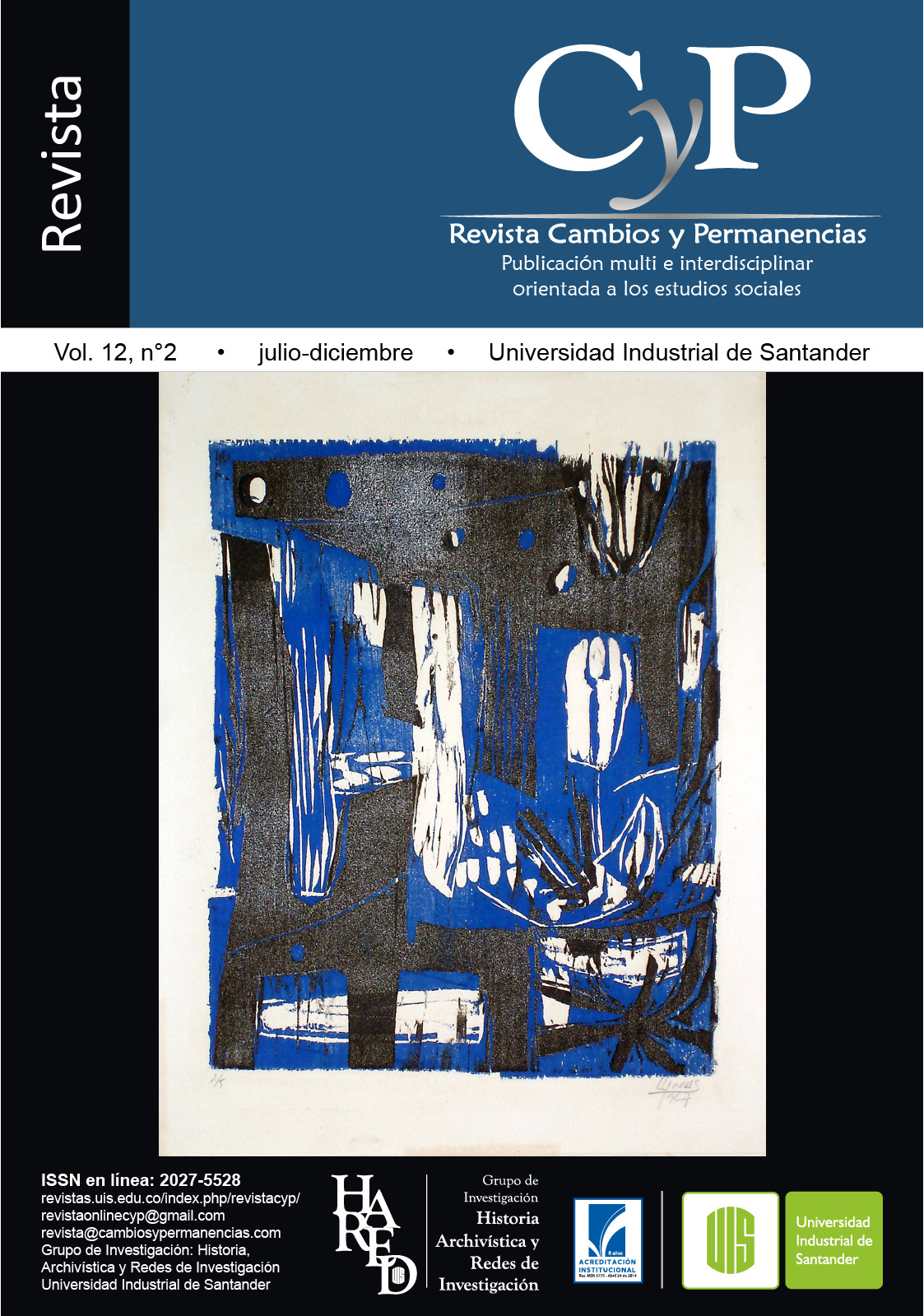Interdisciplinary analysis of research experiences for a perspective from the subjects
Published 2021-12-13
Keywords
- Scientific investigation,
- Capitalist society,
- Main subject,
- Walking wondering
How to Cite
Copyright (c) 2021 Revista Cambios y Permanencias

This work is licensed under a Creative Commons Attribution 4.0 International License.
Abstract
The process of research in the academic trajectory may begin in unexpected ways and even on occasions “inadvertently”. In the present paper, we intend to express how the subject is considered and how we consider ourselves as subjects in the process of research. Are we in the process of reflexivity in our training and in our research practice? In addition, we stand being part of de anticapitalistic plurality of the subjects or as subject of domination? How to think of anticapitalism on a capitalist society? What are the possible ways of being a subject in order of being able to listen what lays latent in the social issues? Starting from the development of two research experiences, in an eight years’ time lapse, it is possible analyze in a critic way the paths that we have already walked and the road that it is yet to be walked. Meanwhile, it is our interest to analyze how is possible to start a new road from social instituting activities toward new instituted as Castoriadis points out in order to consider the subject of our inquiries from a perspective that includes that same subject.
Downloads
References
- Referencias bibliográficas
- Amengual, G. (2007). El concepto de experiencia: de Kant a Hegel. Tópicos, (15), 5-30. Recuperado de http://www.redalyc.org/articulo.oa?id=28811907001
- Salcido Serrano, R., y Sandoval Álvarez, R. (2016). El problema y el sujeto en la investigación. Metodología y epistemología crítica. Guadalajara, Jalisco, México: Universidad de Guadalajara, Centro Universitario de Ciencias Sociales y Humanidades Guanajuato.
- Sandoval, R. (2016). Cuaderno 1. Formas de hacer metodología en la investigación. Reflexividad crítica sobre la práctica. Guadalajara, México: Grietas Editores.
- Sandoval, R., y Valiente, S. (2019). Aspectos generales de una forma de hacer metodología de la investigación desde la perspectiva del sujeto. Documento inédito elaborado para el Módulo 5 del Seminario Virtual Nº 1926 “Espacios Globales para la expansión del Capital Transnacional en el Continente Americano”, dictado en la plataforma de Educación Virtual de CLACSO.
- Torres Carrillo, A. (2011). Investigar desde los márgenes de las ciencias sociales. En S. Fernández Moreno, M. Gómez Builes y M. López Muñoz (Comp.), Conversaciones sobre las prácticas investigativas desde la pregunta por las metodologías críticas en contextos sociales de despojo, destierro y desplazamiento forzado: elementos provocadores para una filosofía de la praxis (25-45). Medellín, Colombia: Universidad de Antioquia.
- Valiente, S. (2020). Posicionar la investigación de borde. Revista Latinoamericana De Metodología De Las Ciencias Sociales (Relmecs), 10(1). doi: 10.24215/18537863e072
- Zemelman, H. (2000). Conocimiento y Sujetos Sociales. Contribución al estudio del presente. México: Centro de Estudios Sociológicos, Colegio de México.
- Zemelman, H. (2005). Pensar teórico y pensar epistémico: los retos de las ciencias sociales latinoamericanas. Argentina: Instituto Pensamiento y Cultura en América. A. C. “Enseñar a pensar”.
